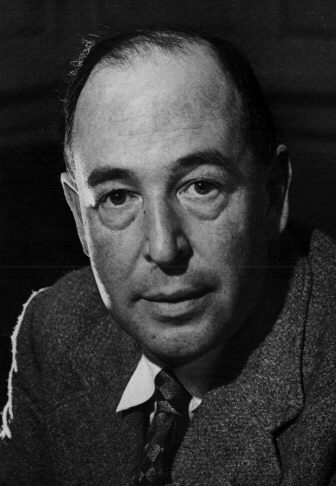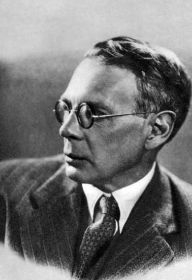Arthurian Torso
This book is a member of the special collection Special Collection: The Works of Charles Williams (1886-1945)
Book Details
| Title: | Arthurian Torso | ||||||||||
| Author: |
| ||||||||||
| Author: |
| ||||||||||
| Published: | 1948 | ||||||||||
| Publisher: | Oxford University Press | ||||||||||
| Tags: | non-fiction | ||||||||||
| Description: | Containing the posthumous fragment of The Figure of Arthur by Charles Williams and a commentary on the Arthurian Poems of Charles Williams. [Suggest a different description.] |
||||||||||
| Downloads: | 2,900 | ||||||||||
| Pages: | 248  |
Author Bio for Lewis, C. S. (Clive Staples)

Clive Staples or C.S. Lewis (1898-1963) was a British literary scholar and novelist. He was a fellow of Magdalen College, a prestigious College at Oxford University. His strong religious background influenced such books as "The Problem of Pain" and "The Screwtape Letters". He is better known for his adult science fiction trilogy: "Out of a Silent Planet", "Perelandra", and "That Hideous Strength". This series is heavily influenced by Christian thinking and was inspired by his friendship and association with fellow writers J.R.R. Tolkien and C.S. Williams. But perhaps his best known stories belong to a series of children's books known as the Chronicles of Narnia which begins with "The Lion, the Witch and the Wardrobe". The series is peppered with Christian allegory and ethics and rates among the most important writing for children in the 20th century. (Oxford Companion to English Literature, Chambers Biographical Dictionary)
Author Bio for Williams, Charles

Charles Walter Stansby Williams (September 20, 1886-May 15, 1945) was an English writer, lecturer and literary advisor at the Oxford University Press. He was also an active member of the Inklings, an informal literary society formed by C. S. Lewis and J. R. R. Tolkien.
During his lifetime he wrote 30 volumes of poetry, plays, literary criticism, fiction, biographies, reviews and theological arguments. It is safe to say that the fullest expression of his mature views is to be found in criticism in The English Poetic Mind (1932), Reason and Beauty in the Poetic Mind (1933), and The Figure of Beatrice (1943): in poetry and drama in Taliessin through Logres (1938), The Region of the Summer Stars (1944) and Thomas Cranmer of Canterbury (the Canterbury Festival play for 1936): and in theology in He Came Down from Heaven (1938) and The Descent of the Dove (1939). Among his biographical works the most notable are Bacon (1933), James I (1934), Rochester (1935) and Queen Elizabeth (1936); and among his novels War in Heaven (1930), The Place of the Lion (1931), Many Dimensions (1931), Descent into Hell (1937) and All Hallows’ Eve (1945).
Williams was an unswerving and devoted member of the Church of England, with a refreshing tolerance of the scepticism of others, and a firm belief in the necessity of a “doubting Thomas” in any apostolic body. More and more in his writings he devoted himself to the propagation and elaboration of two main doctrines – romantic love, and the co-inherence of all human creatures. These themes formed the substance of all his later volumes and found their fullest expression in the novels (which he described as “psychological thrillers”), in his Arthurian poems, and in many books of literary and theological exegesis. His early verse was written in traditional form, but this he later abandoned in favour of a stressed prosody built upon a framework of loosely organized internal rhymes.
Charles Williams worked nearly all his life for the Oxford University Press, also lecturing extensively on English literature for evening institutes and latterly for Oxford University. Much of his critical writing grew out of this activity. His seven novels appeared from 1930 onwards; unlike much fantasy fiction, they deal not with imaginary magical worlds but with the irruption of supernatural elements into everyday life. He passed away in Oxford in 1945 at the age of 58.
—G. W. S. Hopkins, Dictionary of National Biography, 1941-50.
Available Formats
| FILE TYPE | LINK | ||
| UTF-8 text | 20170131.txt | ||
| HTML | 20170131.html | ||
| Epub | 20170131.epub | If you cannot open a .mobi file on your mobile device, please use .epub with an appropriate eReader. | |
| Mobi/Kindle | 20170131.mobi | ![1. Download the .mobi file into your computer’s Downloads Folder.
2. Rename the file from [8-digit number].mobi to [my title].mobi.
3. Connect your Kindle to your computer using the Kindle USB cable.
4. Open the “documents” folder in the Kindle directory and Copy/Paste
the renamed .mobi file into the “documents” folder.
5. Eject your Kindle. The file will then appear in the Kindle Main Menu
as a New item with the new renamed file name. Info](/images/info.jpg) | Not all Kindles or Kindle apps open all .mobi files. |
| PDF (tablet) | 20170131-a5.pdf | ||
| HTML Zip | 20170131-h.zip |
Kindle Direct (New, Experimental)
Send this book direct to your kindle via email. We need your Send-to-Kindle Email address, which can be found by looking in your Kindle device’s Settings page. All kindle email addresses will end in @kindle.com. Note you must add our email server’s address, [email protected], to your Amazon account’s Approved E-mail list. This list may be found on your Amazon account: Your Account→ Manage Your Content and Devices→ Preferences→ Personal Document Settings→ Approved Personal Document E-mail List→ Add a new approved e-mail address.
This book is in the public domain in Canada, and is made available to you DRM-free. You may do whatever you like with this book, but mostly we hope you will read it.
Here at FadedPage and our companion site Distributed Proofreaders Canada, we pride ourselves on producing the best ebooks you can find. Please tell us about any errors you have found in this book, or in the information on this page about this book.
